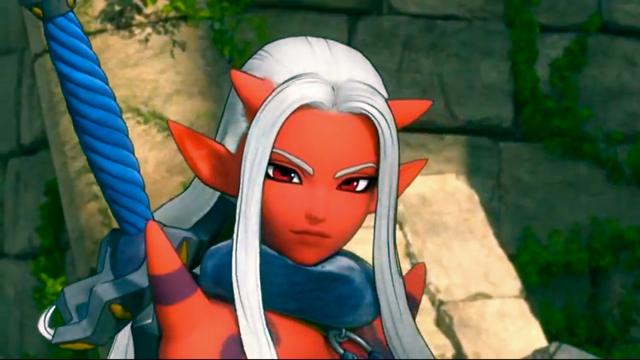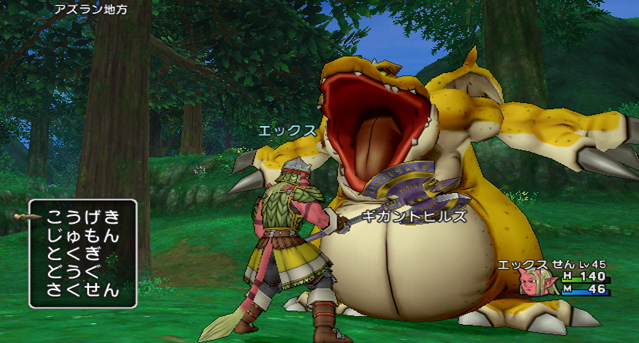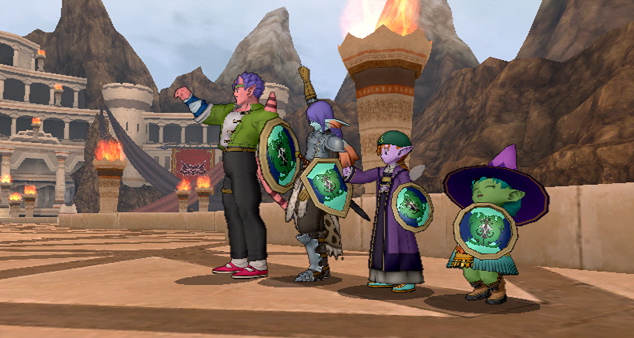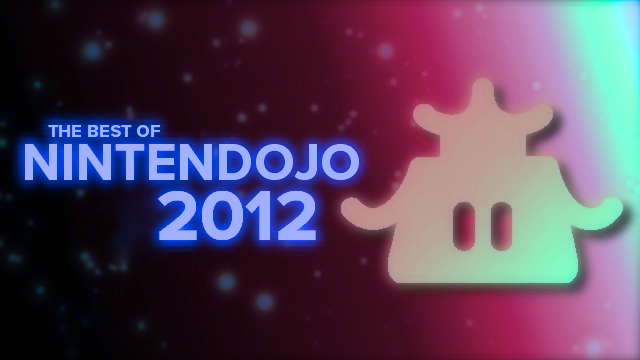|

By day, I’m a mental health therapist because I’m fascinated by the mind, how it works, and ultimately why we humans behave the way we do. By night, however, I’m a gamer through and through. When I sit down to play, my two passions overlap as I am constantly trying to understand the connection between us players and the virtual world in which we participate. In my personal and professional opinion, gaming has a very distinct impact on our psyche, and can tell us a lot about ourselves.
With the rise in popularity of MMOs, it may be safe to assume that gamers are now, perhaps more than ever, connecting with one another in significant ways by means of these massive virtual worlds. As a result of this, we, as people, are being presented with even more opportunities to hone our interpersonal skills. But if there’s one thing I’ve learned in my time providing therapy, it’s that bonding with another person takes an incredible, and oft profound, sense of self. Without understanding who we are, and essentially what we’re all about, we may find it difficult to establish sincere relationships with other human beings. From what I’ve observed in my practice, I’ve also concluded that many individuals, who lack self-identity, may engage in unhealthy relationships, or not engage in meaningful relationships at all. This idea is made even more poignant by some recent data which suggests that those who consider themselves “hardcore” gamers, are actually more apt to isolate, lack effective communication skills, engage in fewer social activities, and generally report less emotional fulfillment in their lives.
That aside, while gaming can indeed be the object of negative attention from science and the media, I believe games can assist us in better understanding ourselves, and, in turn, help steer us away from the data and stigma that implies we are all dysfunctional recluses who enjoy living in fantasy worlds more than reality. I believe massively multiplayer online games are one of the key genres that can show people, the world over, that video games are so much more than coping mechanisms, or merely a way to escape the struggles of everyday life via an altered reality. In my opinion, MMOs can act as a personality inventory of sorts, in the same vein as the most famous ones such as the Myers-Briggs or Keirsey Temperament Sorter, both of which are personality questionnaires designed to help people better understand themselves and others.
Taking all of that into consideration, we lovers of all things Nintendo have a big game on the horizon that could help us better know ourselves– that big game being the tenth installment of one of the most illustrious and coveted JRPG franchises in gaming history, Dragon Quest X. While some have expressed their disappointment in X, due to its MMO implications, I welcome this online iteration of the series, as I believe it can provide a breath of fresh air into Nintendo’s very single player– and on-the-couch multiplayer– centric library.

Angry yellow frog demon? Check. Swordsmen with tail and jackets of leaves? Check. It’s a JRPG, alright.
For starters, it seems that Dragon Quest X is shaping up to be a real contender within the realm of console MMOs. I think part of that is thanks to its seeming adherence to MMO conventions while still managing to incorporate Square Enix’s usual splash of innovation. One area in particular that has me personally excited is the class system. In Dragon Quest X, players will reportedly be able to create a character and choose a specific class that will help define them in the game’s world. At a time when the MMO market is seemingly trying to get away from the, sometimes perceived, “rigid” class structure (see Guild Wars 2, The Secret World, RaiderZ, Final Fantasy XIV, and even Rift to a marginal extent), it would be nice to see a game stick to what helped birth gaming identity in the first place. I think if Dragon Quest X plays its cards right, it can be that game.
We can probably trace the notion of “gaming identity” all the way back to Dungeons & Dragons, which sees players take on specific roles within a group of adventurers. Much like its D&D roots, Dragon Quest X will also grant players this opportunity, allowing them to specialize in one of six base jobs: Warrior, Martial Artist, Mage, Thief, Monk, and Minstrel. My hope is that, whichever job you choose, it will determine how you play the game, what skills you can use, and what role you take on when meeting up with friends and strangers to tackle bosses and quests. Unlike many of the newer games of this ilk, based on the information currently available, it appears that Dragon Quest X will require players to choose their job early in the game, and from then on, they will be forced to stick with that character. If you’d like to choose another class, it appears that doing things the old fashion way, creating an alt– a secondary character you may play when you’re bored with your main character or for some other specific reason– will be necessary. That is to say, if you start the game off as a Warrior, but then 50 hours into the game, you decide you want a Mage as well/instead, you’ll be asked to create a wholly new character, and start your progress over from the beginning.

Character classes and overall design can represent far more than just aesthetic differences in MMOs.
In a lot of more standard MMOs, though, games have players begin by creating their character and picking a class, much like I’m hoping Dragon Quest X will. It’s often thought that picking a class in an MMO is the most difficult part of the game in that you will be leveling that particular avatar for hundreds, or perhaps even thousands, of hours. We become emotionally invested in our characters at that point. Thus, players want to be sure that the class they’ve chosen is the one that will provide them with the most fun over their lengthy journey. MMO players usually refer to this first character as their ‘main,’ or the one in which they will primarily be trying to understand and play the most. Their friends and guild-mates will know them by this character and will call on them in situations in which their particular ‘main,’ or skill set, is needed. That is to say if your friends are playing and require a healing character in their group, and you just so happen to ‘main’ a healer, they will probably first and foremost associate you with that class, and therefore ask for your assistance given your specialty in the area of healing.
Pages: 1 2




 ShareThis
ShareThis







